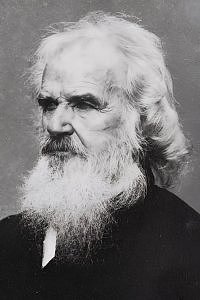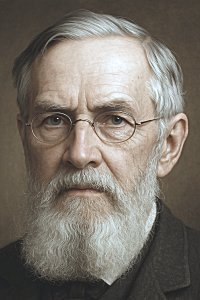Introduction

Words: John Pierpont, 1824.
Music: Waltham (Calkin) John B. Calkin, 1872 (🔊 pdf nwc).
Alternate Tune:
- Mainzer Joseph Mainzer, circa 1845 (🔊 pdf nwc)

True worshipers shall worship the Father in spirit and in truth.
John 4:23

Words: John Pierpont, 1824.
Music: Waltham (Calkin) John B. Calkin, 1872 (🔊 pdf nwc).
Alternate Tune:

Universal Worshipis the title which this hymn bears in the author’s Poems and Hymns, 1840. It was written for the opening of the Independent Congregational Church in Barton Square, Salem, Massachusetts, December 7, 1824, and was printed at the close of the sermon preached by Rev. Henry Coleman on that day.The sentiment of verses two and three seems to have been inspired by Christ’s conversation with the woman of Samaria at the well.
Nutter, pp. 10–11
O Thou, to whom, in ancient time,
The lyre of Hebrew bards was strung,
Whom kings adored in song sublime,
And prophets praised with glowing tongue.
Not now in Zion’s height alone
The favored worshiper may dwell,
Nor where, at sultry noon, Thy Son
Sat weary by the patriarch’s well.
From every place below the skies,
The grateful song, the fervent prayer,
The incense of the heart, may rise
To Heaven, and find acceptance there.
In this, Thy house, whose doors we now,
For social worship, first unfold,
To Thee the suppliant throng shall bow,
While circling years on years are rolled.
To Thee shall age, with snowy hair,
And strength and beauty, bend the knee;
And childhood lisp, with reverent air,
Its praises and its prayers to Thee.
O Thou to whom, in ancient time,
The lyre of prophet bards was strung,
To Thee at last, in every clime,
Shall temples rise, and praise be sung.